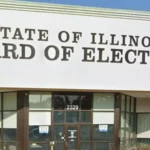
On the first day of his second term, President Trump signed several executive orders, addressing the immigration crisis at our southern border. Between 2018 and 2022, the United States saw an influx of over 44 million unauthorized immigrants, according to estimates by the Office of Homeland Security. Among these have been drug dealers, cartel members, and human traffickers who have committed heinous crimes against innocent Americans. This crisis required serious attention from the administration and the President made the right decision to prioritize border security. Some of President Trump’s new policies are already making a difference, while others are facing legal challenges that are likely to drag on for months.
Immediate Effects:
Despite the legal challenges, some of the executive orders have had an immediately positive effect. Arrests and deportations have increased and Border Patrol Chief Michael Banks reports that the release of migrants into the United States has been virtually halted. Additionally, asylum-seekers are now being required to wait in Mexico until their US immigration court hearing. Banks also reported a dramatic drop in attempted illegal border crossings, which he attributes to Trump’s policies acting as a deterrent. This in itself is a great win for the Rule of Law. The Biden administration created an expectation that the law would not be enforced and, as a result, thousands of people put themselves in the hands of dangerous criminals in an attempt to reach the United States. By showing a basic willingness to enforce our nation’s laws, President Trump has already made our border much safer.
Legal Challenges:
Trump’s use of the Alien Enemies Act of 1798 is facing significant and sustained legal challenges. This law authorizes the president to detain or deport citizens of an enemy nation based solely on their country of birth or citizenship. The Alien Enemies Act can be invoked during a time of declared war or an active invasion. In three previous, presidents have used its provisions to safeguard the American people. The first was during the War of 1812, when President Madison claimed that “all subjects of his Britannic Majesty, residing within the United States, have become alien enemies.” The second time was during World War I to restrict residency, work, possessions, speech and activities of foreign nationals of countries with whom the US was at war. Finally, during World War II, FDR invoked the Alien Enemies Act to place restrictions on Germans, Italians, and Japanese nationals living in the United States. All three of these instances occurred in the midst of a congressionally-declared war. However, in the case of ongoing invasion the President does not need to wait for Congressional approval or a declaration of war to invoke this Act
The legal fight on President Trump’s current reliance on the Alien Enemies acts turns on whether the President has the authority to declare a state of invasion. On March 15th, a DC federal judge implemented a fourteen-day restraining order preventing the deportation of five Venezuelan nationals. As of March 25, an appeals court has upheld this restraining order. President Trump has already indicated that he believes we are facing both a predatory incursion and an invasion from the Tren de Aragua, a narco-terrorist group with ties to the Venezuelan government. In the coming weeks, we expect his authority to do so to be litigated in the federal court system. Landmark will be watching these cases closely and will update you as they move forward.
SUPPORT LANDMARK LEGAL FOUNDATION
We are truly facing existential threats to our individual rights and liberties, the Constitution, and our national character. If unchallenged, this assault on our very way of life will ruin our great nation. With your financial and moral support, Landmark is not going to let that happen without a fight. Will you join us?
JOIN OUR MAILING LIST
Never miss an update from Landmark Legal Foundation as we continue the fight to preserve America’s principles and defend the Constitution from the radical left.





